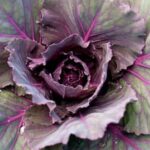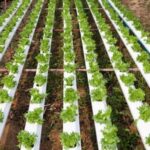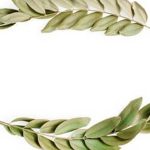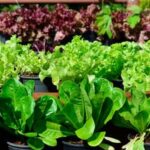Using composted horse manure in vegetable gardens is a popular and cost-effective method of enriching the soil with essential nutrients. However, it is crucial to understand the safety aspects of using horse manure in gardens to ensure the well-being of both plants and consumers. This article explores the safety considerations of using composted horse manure in vegetable gardens and provides valuable information on best practices for its application.
Composted horse manure is often touted as a valuable organic fertilizer for vegetable gardens, offering a sustainable way to improve soil quality and promote plant growth. However, many gardeners have concerns about whether it is safe to use horse manure, given the potential risks associated with pathogens and harmful chemicals. Understanding the differences between fresh and composted horse manure can shed light on this issue.
In this article, we will delve into the benefits of using composted horse manure in vegetable gardens while also addressing potential risks and concerns. Additionally, we will provide practical safety measures for handling and applying horse manure, as well as discussing its nutritional benefits for plants. By the end of this article, readers will have a comprehensive understanding of the safety considerations when using composted horse manure in their vegetable gardens.
Understanding Composted Horse Manure
What Is Composted Horse Manure and How Is It Different From Fresh Manure?
Composted horse manure is the result of decomposed and aged horse waste that has been mixed with other organic materials such as straw, hay, or wood shavings. This process allows the manure to break down over time, eliminating odors and reducing the risk of pathogens. Unlike fresh manure, which can be too hot and potentially harmful to plants due to its high nitrogen content, composted horse manure is a more balanced and nutrient-rich soil amendment.
Benefits of Using Composted Horse Manure in Vegetable Gardens
One of the primary benefits of using composted horse manure in vegetable gardens is its rich nutrient content. It provides essential nutrients like nitrogen, phosphorus, potassium, and trace elements that are beneficial for plant growth. Additionally, composted horse manure helps improve soil structure and water retention, making it an ideal amendment for vegetable gardens. Its organic matter content also promotes beneficial microbial activity in the soil, contributing to overall soil health.
Nutritional Benefits for Plants
Composted horse manure offers numerous nutritional benefits for vegetable plants. It acts as a slow-release fertilizer, providing a steady supply of nutrients to plants as it continues to break down in the soil. The valuable organic matter in composted horse manure enhances the soil’s fertility and supports robust plant growth. When used in moderation and following proper guidelines, composted horse manure can significantly contribute to the success of vegetable gardens without causing harm to plants or humans.
Overall, understanding the differences between composted and fresh horse manure is crucial when considering its use in vegetable gardens. When used responsibly and with proper precautions, composted horse manure can be a safe and effective organic fertilizer option for gardeners looking to promote healthy plant growth while maintaining sustainable gardening practices.
Potential Risks and Concerns
When considering the use of composted horse manure in vegetable gardens, it is important to understand and address potential risks and concerns. While composted horse manure can be a valuable organic fertilizer, there are certain factors that gardeners should be aware of to ensure the safety of their plants and themselves.
Some potential risks associated with using horse manure in gardens include the presence of pathogens and harmful chemicals. Fresh manure may contain bacteria, parasites, and other microorganisms that can pose a risk to human health if not properly handled and managed. Additionally, if horses have been treated with certain medications or supplements, residues of these substances may be present in their manure, raising concerns about chemical contamination of soil and plants.
To mitigate these risks and address concerns, there are several safety measures that should be taken when using composted horse manure in vegetable gardens:
- Composting and aging the manure: Composting horse manure allows for the breakdown of pathogens and harmful substances over time. Properly aged composted horse manure is less likely to pose a risk to plants or humans.
- Temperature monitoring: The composting process should reach temperatures that are effective at killing pathogens. Monitoring the temperature during composting can help ensure that the finished product is safe for use in gardens.
- Proper handling and application: When handling composted horse manure, wearing gloves and taking appropriate hygiene measures is important. It should also be applied to vegetable gardens in accordance with recommended application rates to avoid overloading the soil with nutrients.
By following these safety measures, gardeners can minimize potential risks associated with using composted horse manure in vegetable gardens while still benefiting from its nutritional value for plants and soil fertility. In the next section, we will discuss the nutritional benefits of composted horse manure for vegetable plants.
Safety Measures for Using Composted Horse Manure
Composting horse manure is a common practice among gardeners looking for organic and sustainable methods to nourish their vegetable gardens. Composted horse manure, when properly handled and aged, can be a valuable source of nutrients for plants. However, it is crucial to follow safety measures to ensure that using horse manure in gardens does not pose any health risks.
Tips on How to Safely Handle and Use Composted Horse Manure
- Wear gloves and a mask when handling composted horse manure to avoid direct contact with the material.
- Make sure that the composted horse manure has reached the proper temperature during the composting process to kill off any harmful pathogens.
- Use a dedicated storage area for composted horse manure separate from your vegetable garden to prevent any cross-contamination with edible crops.
Importance of Composting and Aging the Manure Before Using It in Gardens
Composting and aging horse manure before using it in vegetable gardens is essential for reducing potential risks. Properly composted horse manure goes through a natural heating process that helps kill off weed seeds and harmful pathogens. Additionally, allowing the manure to age ensures that it has broken down sufficiently, making it safe for use as a fertilizer without posing any risk of burning plant roots.
Precautions Against Potential Contamination
It is important to source your composted horse manure from reputable suppliers who follow proper composting techniques. Be cautious about using manures from horses that have been treated with certain medications or feed supplements that might contain chemicals harmful to plants or humans.
By following these safety measures, gardeners can confidently use composted horse manure as a nutrient-rich fertilizer for their vegetable gardens while minimizing potential health hazards.
Nutritional Benefits for Plants
Composted horse manure is indeed safe for vegetable gardens and offers significant nutritional benefits for plants. It is important to understand the composition of composted horse manure compared to fresh manure. Composted horse manure is the end product of a decomposition process that breaks down organic matter into a nutrient-rich soil amendment. Through this process, potentially harmful pathogens and weed seeds are also destroyed, making the composted manure safer to use in gardens.
One of the key benefits of using composted horse manure in vegetable gardens is its ability to enhance soil fertility. The nutrients present in the compost, such as nitrogen, phosphorus, and potassium, are essential for plant growth and can significantly improve the overall health and productivity of vegetable plants. Additionally, the organic matter in composted horse manure helps to improve soil structure by increasing its water retention capacity and promoting beneficial microbial activity.
When considering the use of composted horse manure in vegetable gardens, it is essential to note that proper application practices should be followed to maximize its benefits while ensuring safety. This includes understanding recommended application rates and frequency, as well as incorporating additional organic fertilizers or soil amendments as needed based on soil testing results. By following best practices for application, gardeners can harness the nutritional benefits of composted horse manure while minimizing potential risks.
| Nutrient | Content in Composted Horse Manue |
|---|---|
| Nitrogen | 5-2% |
| Phosphorus | 1-2% |
| Potassium | 2-3% |
Best Practices for Application
One of the most crucial aspects of using composted horse manure in vegetable gardens is the proper application. When done correctly, the composted horse manure can provide numerous benefits to the soil and plants. However, it is essential to follow best practices to ensure that it is used safely and effectively in the garden.
Firstly, before applying composted horse manure, it is important to test the soil to determine its nutrient levels. This will help in understanding how much additional nutrients are required for the specific vegetables being grown. Once you have this information, you can then calculate the appropriate amount of composted horse manure needed for your garden.
When applying composted horse manure, it should be spread evenly over the vegetable garden and mixed into the top few inches of soil. This can be done by using a shovel or a rake to gently incorporate the compost into the soil. It is important not to apply too much compost at once as this can lead to an imbalance in nutrients and potentially harm the plants.
Using composted horse manure as a fertilizer for vegetable gardens offers various advantages such as improving soil structure, enhancing moisture retention, and promoting healthy plant growth. However, over-application or improper handling of this organic fertilizer can pose risks. Hence, following these best practices for application ensures that your vegetable garden reaps all the benefits while minimizing any potential drawbacks.
| Aspect | Description |
|---|---|
| Nutrient Testing | Test soil before applying composted horse manure |
| Even Application | Spread compost evenly and mix into topsoil |
| Moderation | Avoid over-application to prevent nutrient imbalance |
| Benefits | Improves soil structure and promotes healthy plant growth |
Alternative Options for Organic Fertilizers
When it comes to fertilizing vegetable gardens, using composted horse manure is a popular choice for many gardeners. However, some may have concerns about the safety of using horse manure as a fertilizer. Thankfully, there are alternative options for organic fertilizers that can provide similar benefits for vegetable plants.
Exploring Other Organic Fertilizers
There are several organic fertilizers that can be used as an alternative to composted horse manure. One common option is compost made from kitchen scraps and yard waste. This type of compost is rich in nutrients and beneficial microorganisms, making it an excellent choice for promoting plant growth in vegetable gardens. Additionally, worm castings and fish emulsion are also popular choices for organic fertilizers due to their high nutrient content.
Comparing Benefits and Drawbacks
When considering alternative options for organic fertilizers, it’s important to compare the benefits and drawbacks of each. For example, while horse manure provides essential nutrients for plants and improves soil structure, it requires proper aging and composting to ensure safety.
On the other hand, kitchen scrap compost is relatively easy to produce and does not carry the same risk of pathogen contamination as animal manure. By weighing the pros and cons of different organic fertilizers, gardeners can make informed decisions about which option is best for their vegetable gardens.
Making Informed Decisions
Ultimately, the decision on which organic fertilizer to use in a vegetable garden should be based on factors such as nutrient content, availability, and safety considerations. By considering alternative options for organic fertilizers, gardeners can find the best fit for their specific needs while ensuring that their vegetable gardens remain healthy and productive. Regardless of the choice made, it is important to follow recommended application rates and frequency to avoid over-fertilization or nutrient imbalances in the soil.
Conclusion
In conclusion, the use of composted horse manure in vegetable gardens is a safe and effective way to enhance soil fertility and promote plant growth. While there are potential risks and concerns associated with using horse manure, proper composting and aging can mitigate these issues, making it a valuable organic fertilizer for gardeners. Understanding the benefits and best practices for application is crucial for ensuring the safety and effectiveness of composted horse manure in vegetable gardens.
It is important to note that composted horse manure should be handled and applied with care, following safety measures to prevent any potential contamination or harm to plants. By properly composting and aging the manure before use, gardeners can minimize the risk of pathogens and harmful chemicals, while maximizing its nutritional benefits for plants. Additionally, considering alternative options for organic fertilizers allows gardeners to make informed decisions that best suit their gardening needs.
Frequently Asked Questions
Is Composted Horse Manure Good for Vegetable Gardens?
Composted horse manure can be good for vegetable gardens when used as a soil amendment. It provides essential nutrients and improves soil structure, but it should be composted to avoid potential weed seeds and pathogens.
Is Horse Manure OK for Tomatoes?
Horse manure can be beneficial for tomatoes if it is composted before use. Fresh manure may contain harmful bacteria and high levels of nitrogen that can damage the plants, so composting is essential.
Can You Plant Vegetables in Composted Manure?
Planting vegetables directly in composted manure can be an effective way to provide them with nutrients and improve soil quality. However, it’s important to make sure that the manure is fully composted to avoid any potential risks to the plants’ health.

If you’re looking to get into vegetable gardening, or are just looking for some tips on how to make your current garden better, then you’ve come to the right place! My name is Ethel and I have been gardening for years. In this blog, I’m going to share with you some of my best tips on how to create a successful vegetable garden.





